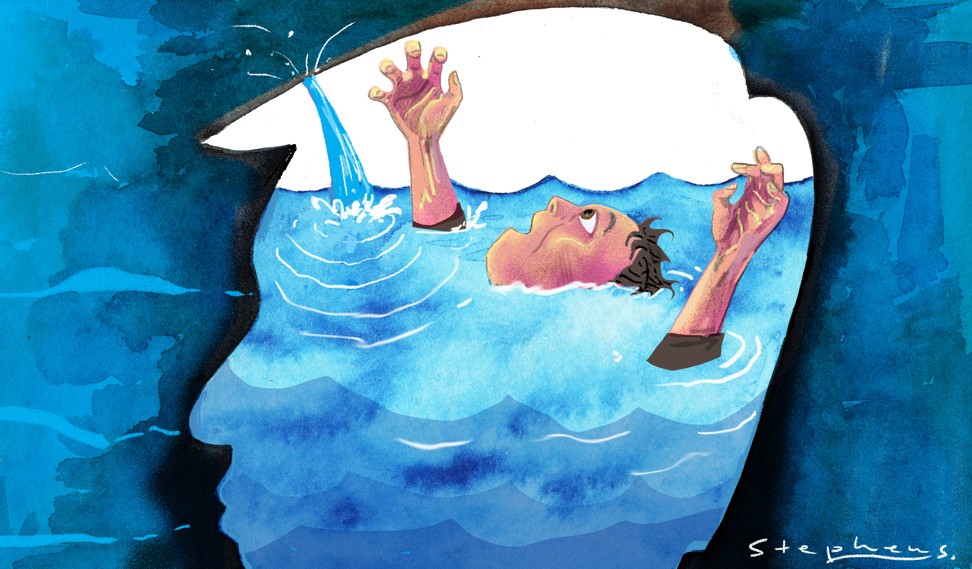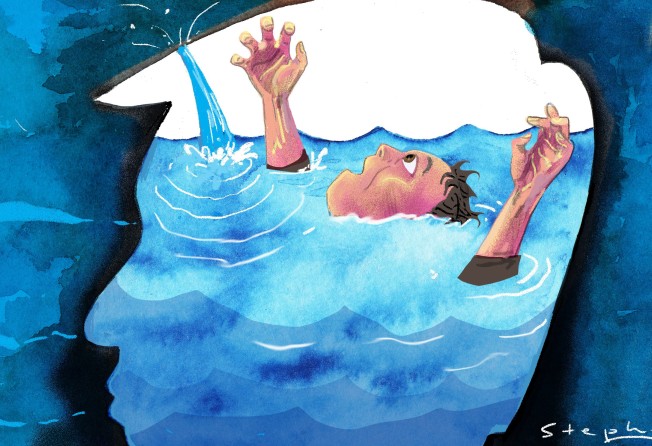
Stigma of mental health problems is where the real fight lies
Anson Au says to prevent suicides, Hong Kong must make more effort to understand the causes of mental pain, recognise the shared humanity from which they arise, and extend a helping hand


A report late last month said firefighters have recently improved their techniques to help suicidal jumpers. And two weeks before that, we read about yet another study in Hong Kong indicating a rise in mental stress for students and their parents, and that overall mental health has declined.
Many have seized on these facts to call for more mental health services. While this is important, two key parts of the picture are overlooked: do people really understand what mental health is, as well as the many mental health problems beyond suicide?
My research shows that East Asian cultures view mental health more as stigmatised curses upon the family and society than as legitimate health issues. Against this backdrop, highlighting suicide and depression rates alone isn’t enough. Because people don’t know what mental health is, they don’t value it in the first place. And it’s because they don’t value it that coping resources for mental health are dismissed and problems go unchecked until they become extreme. We need to put flesh on the bones by directly discussing what mental health is – and what it is not.

First, mental health problems are the product of our circumstances; and encountering such life circumstances is part of being human. Even among scholars, doctors and other health care professionals, mental health problems are discussed in the language of jagged teeth and bloodshot eyes, marks of a beast to be conquered – “our demons”, or “things we must ‘fight’ together”.
Mental health can be elusive and its problems can be frightening. But they’re not so alien, so unsolvable, and so evil as demons
This is wrong. We mustn’t let ourselves be blinded in the fog of a war that will only bloody us in a fight against ourselves. Mental health can be elusive and its problems can be frightening. But they’re not so alien, so unsolvable, and so evil as demons. Thinking that they are pushes their sufferers further away from us, and into the box marked for “crazies” and “failures”.
Rather than “fight” them, mental health problems should be untangled and understood from the perspective of our personal history – the winding life’s journey that all of us go through.
A person who makes an island of his room because of depression, severed from a continent of others, is often dismissed as an hermit with poor communication skills. But behind this facade lies a story unique yet universal. Encountering challenges specific to our experiences is a fundamentally human story. Who can say they haven’t faced a difficulty or even several at the same time?
When we demonise mental health problems, we make their victims into aliens we should lock up out of sight. The surge of institutionalisation in asylums during periods when mental health problems were most stigmatised is a reminder of the dangers of such demonisation. By contrast, when we humanise mental health problems, we turn their sufferers into fellow people who just need some help. Our understanding of their pain salvages the person from the stigma of their circumstances.

Second, the state of our mental health holds up a mirror to society. Though mental health is often discussed in terms of statistics on depression, anxiety and other problems, these facts and figures in fact paint a multidimensional picture, reflecting processes that have taken root in the community.
Mental health problems happen to individuals. But their causes are manifold, connected across the social, cultural, political and economic layers of our reality. High rates of drug abuse and delinquent behaviour within a neighbourhood, for example, actually tell captivating stories of family norms in street culture, of inadequate services for the lower socio-economic classes, of a lack of school resources and educational role models, and of people clawing at a wall only because they’ve been pushed against it for too long.
Mental health statistics don’t just tell us where the trees are planted, but also the taste of their soil; not just where the problems are, but why. And the problems themselves reveal poignant narratives about broader changes in our communities.

Third, preserving mental health is a human value, inseparable from the right to well-being. Mental health is not the violence of a madman, neither is it born of a will to bring about chaos. It’s someone flailing his arms because water is rising above him in a closed room. We can see their arms, but few among us see the water drowning them. We must stop ourselves from judging symptoms without understanding the causes.
When next you see someone struggle, their arms flailing, think of the ocean that we can’t see crashing against their skin – and reach out
Mental health problems are not symptoms of self-pity and victimhood; they are products of circumstances that are common to humanity itself. And as members of a family, a community, and shared humanity, we must view mental health sufferers with the same empathy as we do those who have physical health problems. Only by so doing can we improve life for all in our society.
Will we only care about someone after they become a headline? Have our hands got so used to holding shovels that they’ve forgotten how to hold one another? Does our sympathy only flow for the living after they become the dead?
Give people the space to be weak. Let them feel and talk and trust in the potential for help. Demons, enemies and curses aren’t killing people. We are. When next you see someone struggle, their arms flailing, think of the ocean that we can’t see crashing against their skin – and reach out. Don’t close the door.
Anson Au is a visiting researcher in the Department of Sociology at the Hong Kong Baptist University and a research officer at the LSE Health and Social Care and Department of Social Policy (joint) at the London School of Economics and Political Science